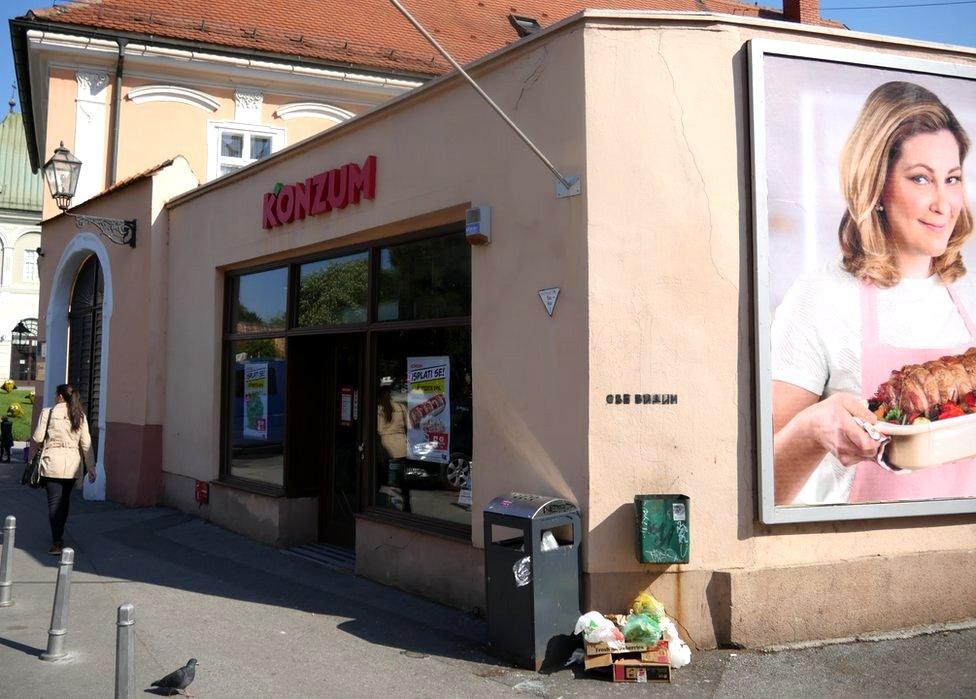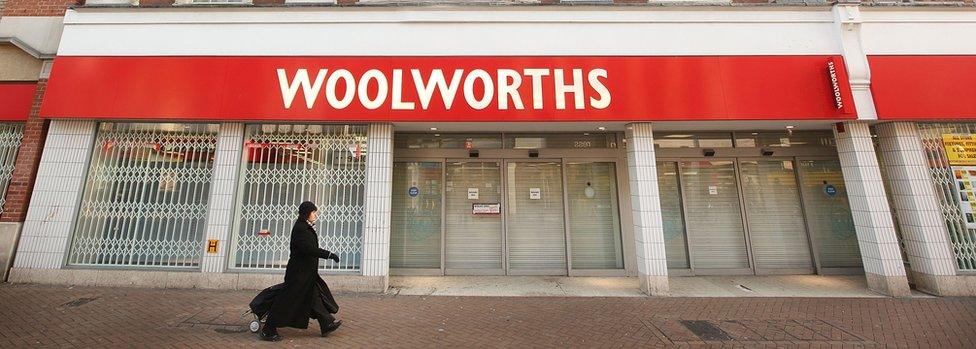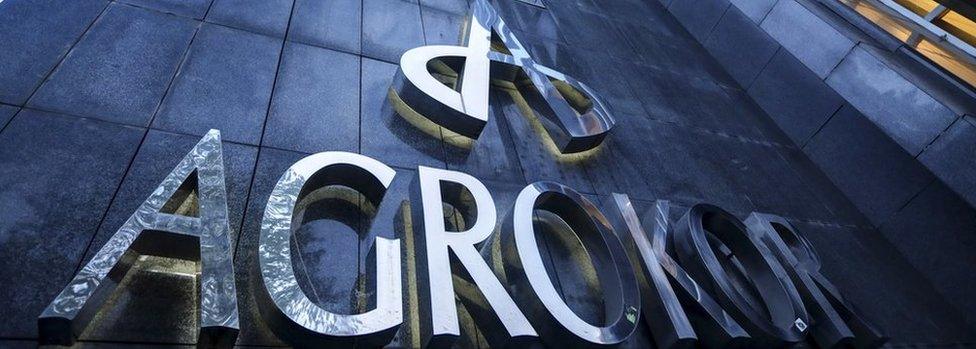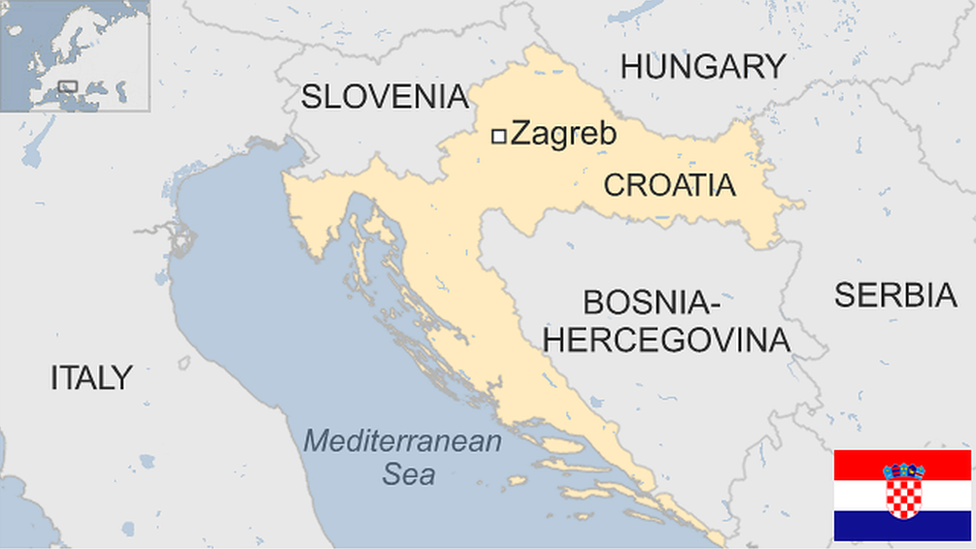Croatia supermarket chain that threatens a crisis
- Published

If these supermarkets shut, a large part of Croatia's economy will be affected
Could the demise of a supermarket chain trigger a national recession? It may seem unlikely, but that is the situation facing Croatia.
The country's biggest company, Agrokor, which owns the supermarkets, is teetering on the brink of collapse. And if it does fall, the impact will reverberate across the Balkans.
When big national chains have collapsed elsewhere, like BHS and Woolworths in the UK, the impact on jobs and high streets has been brutal.
But Croatia has only four million people - and 60,000 of them are directly employed by Agrokor.

When Woolworths closed its 800 stores in the UK, tens of thousands of people lost their jobs
If this company went down, the repercussions would be far wider than the 1,000 or so spaces where its Konzum supermarkets currently stand.
"The collapse of Agrokor could cause a recession," says Croatia's Economy Minister Martina Dalic.
"Its core company, Konzum, has 2,500 suppliers, which employ more than 150,000 people. There is a systemic risk if Agrokor is faced with bankruptcy."
Agrokor's revenues are worth more than 15% of Croatia's total GDP.
It also has considerable interests in Slovenia, Bosnia, Serbia and Montenegro. The threat of collapse worried their governments so much they held a ministerial summit about the crisis.
Too much, too fast
The problem is that the company has debts of more than €6bn (£5bn; $6.7bn), largely the legacy of an attempt to become the dominant regional retailer.
It took out loans to fund the purchase of Slovenian rival Mercator in 2014. Now it is unable to repay them.
The government has appointed a restructuring team to take control of the business and save what it can. It seems like a classic case of corporate goals running ahead of financial reality.
But Ms Dalic has some sympathy with Agrokor's ambition.
"Should the size of a company be related to the size of the economy? That would mean Croatian companies are doomed to stay small," she says. "And if they stay small, they're obviously not competitive enough."
Fall of a tycoon
At the heart of this crisis is Croatia's richest man, Ivica Todoric.
His personal legend says that his journey from humble florist to castle-dwelling tycoon was built on hard work alone.

Agrokor's biggest creditors are two Russian banks
But he cultivated the right political connections and built his considerable fortune by snapping up formerly state-owned businesses.
Before the crisis, he owned almost all of Agrokor, and appointed family members to key management positions.
But as the clouds around the company darkened, he handed control over to the Croatian government.
Nenad Zakosek, a professor of political science at Zagreb University, believes the tycoon was given too much leeway by political allies, with disastrous consequences.
"He has enjoyed very specific privileges and special deals involving, for example, usage of land and water," he says.
The tills are still ringing at Konzum.
But there are signs that the crisis is deepening, with consumers starting to desert the supermarket for rival retailers. One Croatian newspaper reported a sales slump of more than 10% in the year to April.
This is bad news for tens of thousands of workers worried about the future, and not just in Croatia.
Slovenia, Bosnia and Serbia also have large numbers of Agrokor employees.
All of them will be hoping that Agrokor really is too big to fail.
- Published13 January
